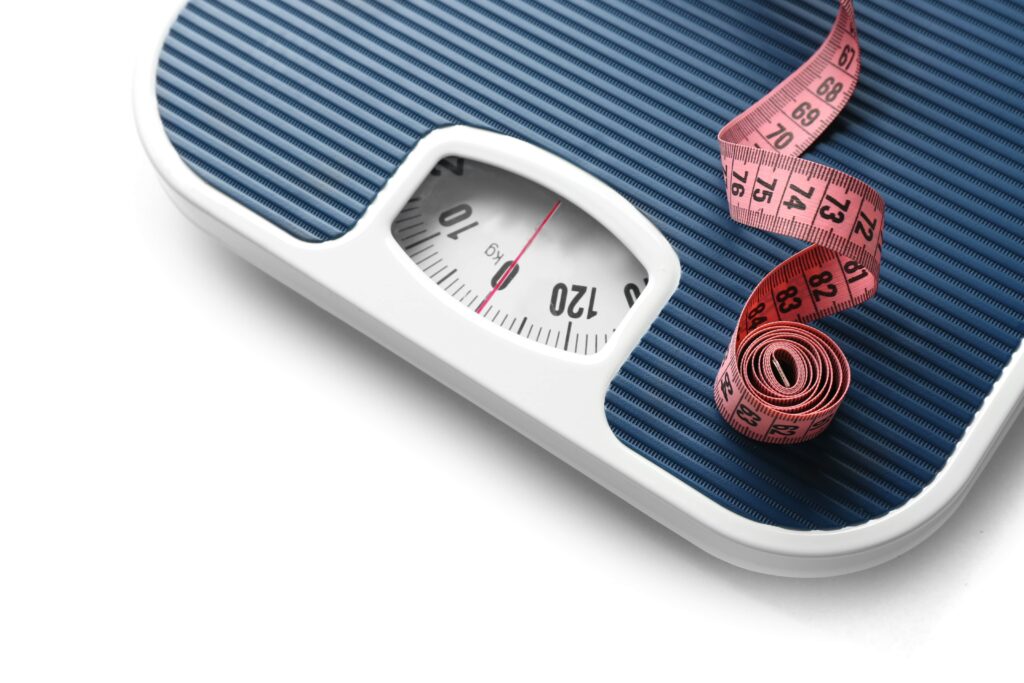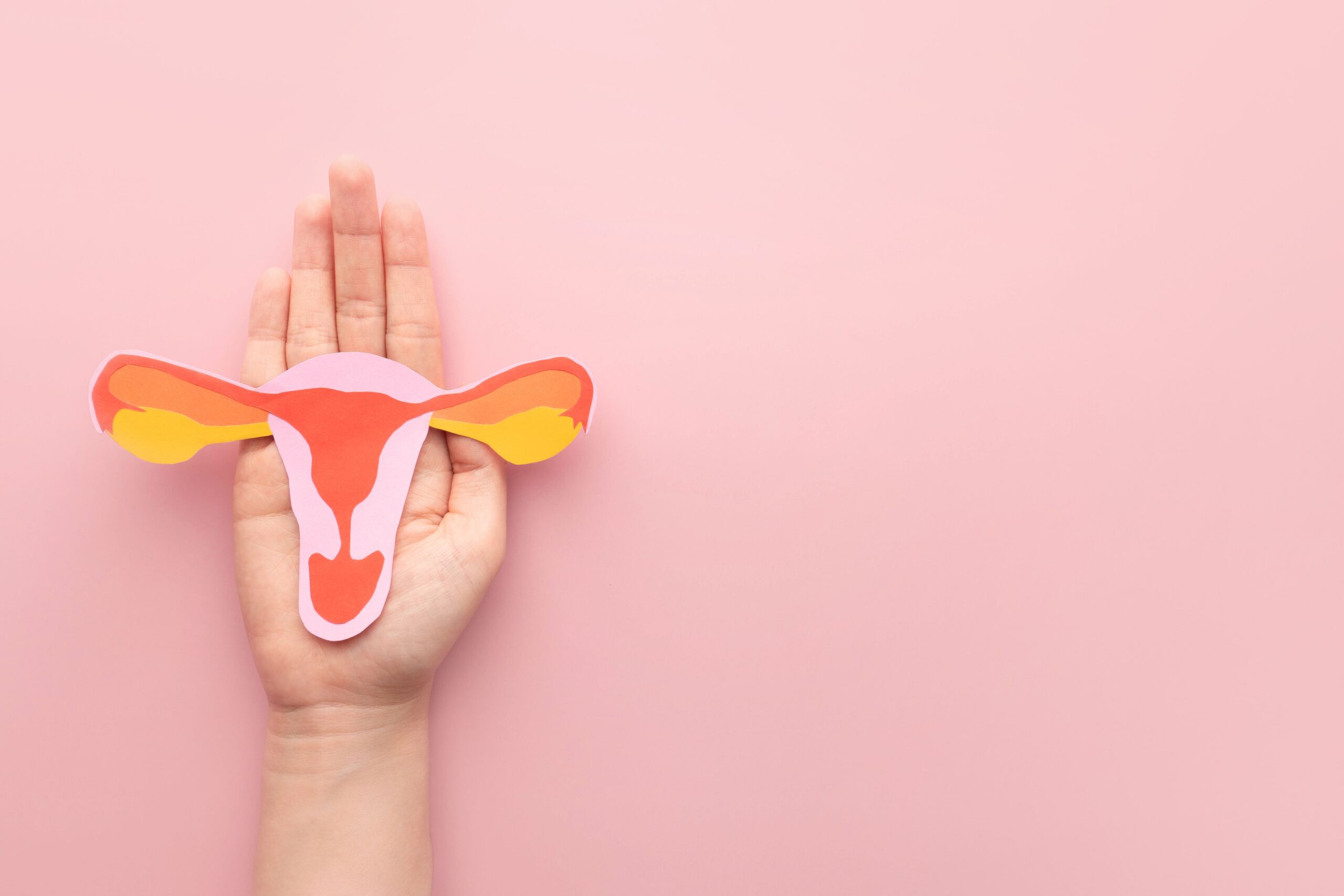To weigh or not to weigh
As soon as you wake in the morning, you tense up… you place both feet on the ground, take a breath and sigh in apathy just hoping the number you see this time might just be enough… feel like enough… but to no avail, is it really ever?
If stepping onto a scale is a regular part of your routine, this blog is for you!
Whilst it can help us to feel a sense of control, it is likely that it is doing you more harm than good.
We live in a world where diet culture is pervasive. Diet culture would have us believe that weighing ourselves regularly is normal and a good thing to do. However, there is a dark side we need to be aware of.
Most research about self-weighing looks at it in the limited context of weight control without examining psychological impact1. And as far as we know, we can’t separate physical from mental, can we?
A study looking at the impact of self-monitoring weight in 13-year-old girls found that over five years found that those who weighed themselves often, gained twice as much weight than those who didn’t, and had higher levels of unhealthy weight control behaviour such as fasting2. Regular self-weighing has also been associated with deterioration in self-esteem3, increased body dissatisfaction, shape concern and risk of disordered eating1,4.
There are many other reasons that self-weighing may not be all that it is cracked up to be.
The number on the scale is affected by many factors out of our control, such as hormones, hydration, and fluid balance, whether we have pooped or not, and muscle mass. It is an inaccurate measure of our health – weight is just a number, it is one piece of the puzzle, and doesn’t even tell us about our body composition which is more closely linked to health outcomes.
If you are embarking on an eating disorder recovery journey, or trying to ditch dieting for good, this article will highlight what may happen when you stop weighing yourself.
ONE: You will improve your body image
There is a multi-billion-pound industry dedicated to making us think we are not enough (ahem, diet culture). It suggests we need to be skinny in order to be attractive, successful or “healthy”. Therefore, promotes external trackers such as weight monitoring, step counts, calories and more to guide us towards a ‘thin ideal’ that is unattainable and unnatural for the majority. And guess what! They’ve made a lot of money from us in the process.
The alternative?
When we stop focusing on external trackers to define how we feel about ourselves we find a more balanced and whole view of ourselves.
If we start focusing on listening to and responding to our internal signals, we often find we feel a lot more fulfilled AND there are health benefits too, both physical and psychological.
TWO: You will realise weight doesn’t determine your health
Weight loss does not always improve our health. If you have been dieting for a long time, you may have been led to believe that to get healthy you need to lose weight.
This couldn’t be further from the truth.
Research shows that people can achieve improved health from adopting healthier lifestyle behaviours, regardless of whether or not it results in weight loss. For example, you may set a goal to improve your sleep hygiene practices in order to get improved sleep duration and quality. It’s likely that this will have an impact on every area of your life, your concentration, hunger signals, energy levels, and mood. Yet, it may not impact the number on the scale… does that mean it’s not worthwhile? Absolutely not!
Research shows that using a “health at every size” approach, encouraging size acceptance, reduction in dieting behaviour, and heightened awareness and response to body signals, results in longer-term behaviour change and improved health-risk indicators such as metabolic fitness (blood pressure, blood lipids)5.
See our blog all about why your body weight does not determine your health to learn more.
THREE. You will develop a sense of trust with your body
People who have recovered from an eating disorder found that “blind weighing helped rebuild body trust. Rather than eating (or not eating) in response to the number on the scale, participants reported increased trust and reliance on their body’s natural hunger and fullness signals.”8
Blind weighing helps to reduce the importance of weight, and hopefully make space for other aspects of life and recovery to be given more importance.
FOUR: Your anxiety will likely decrease
On the contrary, blind weighing is shown to minimise anxiety and distress from the weight restoration process, decrease eating disorder symptoms and as a result, increased ability to effectively engage in treatment8. Blind weighing is often quicker, and routine like and can prevent experiencing a prolonged period of anxiety we often see before and after open weighing – where in some cases knowing one’s weight can lead to restriction, compensatory behaviours or self-harm8.
Q. But what if I have to weigh myself in ED recovery?
If you are undergoing treatment for your eating disorder, and part of the treatment is to restore your weight, you may find yourself needing to step on the scale to monitor your progress and physical safety.
Some treatment approaches, like cognitive behavioural therapy (CBT) and family-based treatment (FBT), advocate for open weighing. This is founded on the belief that – repeated exposure to your weight will help to reduce fear of knowing your weight and/or being weighed and help dispel the cognitive distortion that eating calorie-dense foods will lead to rapid and unstoppable weight gain6,7.
Open weighing, although advocated for in these treatments, is not the preference of many clinicians or patients and is not founded on strong evidence for improved outcomes. It can trigger rumination and preoccupation with weight and studies have shown it can decrease compliance with meal plans, reduce engagement with therapy and lead to increased anxiety8.
The ONE downside to blind weighing that has been reported by patients is that it doesn’t give you the “evidence” against distorted ideas of rapid weight gain.
If these concerns resonate with you, share these concerns with your treatment team, who can hopefully reassure you on this. If you are currently in a treatment that requires open weighing and you are finding it distressing, we would encourage you to speak with your team and explore if you are able to switch to blind weighing to help reduce anxiety and over time reduce your preoccupation with weight.
If you are ready to hop onto the non-diet train with us or you want to smash your eating disorder, connect with us on Instagram, TikTok and Pinterest.
For one-on-one support in healing your relationship with food, reach out to us at [email protected] to find out more about how we can work with you to find food freedom.
Zoe Light, BSc, RD
Registered Dietitian
EHL Team x
References
- Klos, L., Esser, V. and Kessler, M., 2012. To weigh or not to weigh: The relationship between self-weighing behavior and body image among adults. Body Image, 9(4), pp.551-554.
- Neumark-Sztainer, D., van den Berg, P., Hannan, P. J., & Story, M. (2006). Self- weighing in adolescents: Helpful or harmful? Longitudinal associations with body weight changes and disordered eating. Journal of Adolescent Health, 39, 811–818.
- Pacanowski C, Loth K, Hannan P, Linde J, Neumark-Sztainer D. Self-Weighing Throughout Adolescence and Young Adulthood: Implications for Well-Being. Journal of Nutrition Education and Behavior. 2015;47(6):506-515.e1.
- Rohde P, Arigo D, Shaw H, Stice E. Relation of self-weighing to future weight gain and onset of disordered eating symptoms. Journal of Consulting and Clinical Psychology. 2018;86(8):677-687.
- Bacon L, Stern J, Van Loan M, Keim N. Size Acceptance and Intuitive Eating Improve Health for Obese, Female Chronic Dieters. Journal of the American Dietetic Association. 2005;105(6):929-936.
- Waller G, Mountford VA. Weighing patients within cognitive-behavioural therapy for eating disorders: how, when and why. Behav Res Ther. 2015;70:1–0.
- Murray SB, Loeb KL, Le Grange D. Dissecting the core fear in anorexia nervosa: can we optimize treatment mechanisms? JAMA Psychiatry. 2016; 73(9):891–2.
- Froreich, F., Ratcliffe, S. and Vartanian, L., 2020. Blind versus open weighing from an eating disorder patient perspective. Journal of Eating Disorders, 8(1).














